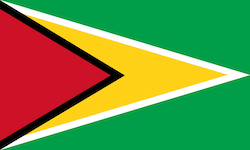In November 2000, Trinidad and Tobago acceded to the 1951 Convention Relating to the Status of Refugees and its related Protocol, committing the state to international human rights protection practices. Almost two decades later, the sudden influx of Venezuelan asylum seekers and refugees to the islands brought the state to question its capacity to adhere to the 1951 treaty.
As the influx of Venezuelan migrants continues to grow, the twin-island nation of Trinidad and Tobago is faced with numerous challenges and dilemmas to integration. The primary challenge to the progression of effective policy and assimilation efforts lays in the numerous misconceptions surrounding migrants, refugees, and asylum seekers.
From a local perspective, there are concerns for the nation’s job market and the state’s economic capacity to cater for the needs for such a large migrant population. Government officials have even argued that Trinidad and Tobago’s status as a Small Island Developing State (SIDS) limits its capacity to host asylum seekers and refugees.
However, numerous studies focused on regions around the globe have found that asylum seekers, refugees, and migrants alike have consistently increased the economic health of their host countries. In fact, the International Monetary Fund (IMF) asserts that Venezuela’s migration has the potential to raise GDP growth in receiving countries, if accompanied by the effective policies.[1] Hippolyte d’Albis and his research team at the Paris School of Economics wrote in a study published in the journal Science Advances that “the alleged migrant crisis experienced by Europe is not likely to provoke an economic crisis, but might rather be an economic opportunity.”[2] Similarly in the Caribbean, economies can flourish once action is taken to effectively integrate migrants into the domestic labour market.
For many native workers, the central concern regarding migrant populations involves the local labour market. A popular socio-political argument claims that migrants take away job opportunities from a nation’s citizens. In practice, however, this claim fails to highlight the numerous ways incoming populations stimulate labour markets. Most migrants have different skill sets from native workers, therefore seeking different job opportunities. As a result, labour can be distributed evenly across various sectors. Therefore, migrants have the capacity to fill gaps in the labour market otherwise neglected by native workers.
Furthermore, relative to Trinidad and Tobago, brain drain poses a challenge to the nation’s labour force. The emigration of high-skilled labour and individuals between 20-25 years old leaves Trinidad and Tobago vulnerable to economic stagnation. The introduction of Venezuelan asylum seekers and refugees into the work force has the potential to compensate for the previous loss of labour. Most of all, migrants are often more inclined to pursue new ventures in the business sphere, contributing to local innovation and entrepreneurship. In addition to compensating for a loss of labour, migrants also further stimulate employment by creating jobs.
Many view migrants, in particular asylum seekers and refugees, as a drain on state-wide resources such as health and education. In the context of the Venezuelan asylum seekers, the costs associated with immediate aid provision could be viewed as an investment with a positive return. While there are immediate economic pressures to the sudden influx of persons, it can be argued the long-term benefits outweigh such. In this case, policy plays an essential role in ensuring balance is maintained between the demands of the citizens and the migrants.
Legislation outlining the labour rights and permissions of asylum seekers in the local workforce is the most significant and urgent policy measure that needs to be addressed by the government of Trinidad and Tobago. In addition to protecting the labour rights (and by extension the human rights) of migrant workers by ensuring they are not underpaid; government policy and legislation allows for a measured approach to managing the influx of refugees and asylum seekers through taxation, documentation and regulation. For example, the demand on public services can be supported by the taxes paid by documented asylum seekers. In turn the tax revenue generated also contributes to the overall economic health of the state.
Moreover, according to UWI economist Roger Hosein in an interview with The New Republic, Trinidad and Tobago could potentially absorb approximately 54,000 low-end workers.[3] He further advised, “If we could increase employment in the agricultural sector, by having a biased work permit program that sends Venezuelan workers into the areas that generate foreign exchange or prevent the use of foreign exchange, by import substitute production, then these workers can add tremendous value to Trinidad and Tobago’s economy.”[4] The additional labour provided by the predominantly Venezuelan asylum seeker and refugee population has the potential to revitalize industries (such as manufacturing and agriculture) that previously struggled to retain workers.[5] As a result, stimulating industries outside of oil and gas is a movement away from dependency on one primary income source, and towards economic diversification.
In conclusion, it is essential for to construct careful and thoughtful legislation to ensure the host community, local government and migrant populations develop a mutually beneficial relationship. Trinidad and Tobago’s economic health can in fact be maintained (and potentially flourish) while welcoming the influx of asylum seekers and refugees, honouring the state’s commitment to both the 1951 Convention Relating to the Status of Refugees and its citizens.
Recruitment agencies can collaborate and be a channel to support the government in documenting and registering migrants. Through collaboration once the appropriate labour policies are in place, recruitment agencies would be able to provide employment guidance services to migrants as a support service in addition to registering them to a database.
[1] Emilio Fernandez Corugedo and Jaime Guajardo, “For Venezuela’s Neighbors, Mass Migration Brings Economic Costs and Benefits,”IMFBlog, International Monetary Fund, November 21 2019, https://blogs.imf.org/2019/11/21/for-venezuelas-neighbors-mass-migration-brings-economic-costs-and-benefits/.
[2] Hippolyte d’Albis, Ekrame Boubtane and Dramane Coulibaly. “Macroeconomic evidence suggests that asylum seekers are not a ‘burden’ for Western European countries,” Science Advances 4 no. 6 (2018): eaaq0883, accessed 20 February 2020, https://advances.sciencemag.org/content/4/6/eaaq0883.full.
[3] Safiya Charles, “Trump’s Venezuela Policy Causing Turmoil in the Caribbean,” The New Republic, August 9 2019, https://newrepublic.com/article/154713/trumps-venezuela-policy-causing-turmoil-caribbean.
[4] Ibid.
[5] Ibid.
Bibliography
Clemens, Michael. “The Real Economic Cost of Accepting Refugees.” Center for Global Development, September 14 2017. https://www.cgdev.org/blog/real-economic-cost-accepting-refugees.
Charles, Safiya. “Trump’s Venezuela Policy Causing Turmoil in the Caribbean.” The New Republic, August 9 2019. https://newrepublic.com/article/154713/trumps-venezuela-policy-causing-turmoil-caribbean.
d’Albis, Hippolyte, Ekrame Boubtane, Dramane Coulibaly. “Macroeconomic evidence suggests that asylum seekers are not a ‘burden’ for Western European countries.” Sciences Advances 4, no. 6 (2018): eaaq0883. Accessed February 20 2020. https://advances.sciencemag.org/content/4/6/eaaq0883.full.
Jacobs, Tom. “Asylum Seekers Do Not Harm A Host Country’s Economy.” Pacific Standard, June 20 2018. https://psmag.com/economics/asylum-seekers-do-not-harm-host-countries-economy.
Bahar, Dany. “Why accepting refugees is a win-win-win formula.” Up Front. Brookings, June 29 2018. https://www.brookings.edu/blog/up-front/2018/06/19/refugees-are-a-win-win-win-formula-for-economic-development/.
Alvarez, Laura Giles and Zandra Gomes. “Improving refugee integration, a Caribbean perspective.” Caribbean DEVTrends. IDB, September 16 2019. https://blogs.iadb.org/caribbean-dev-trends/en/improving-refugee-integration-a-caribbean-perspective/.
Faure, Aymeric. “Migratory patterns in the Caribbean: impacts and perspectives for Caribbean countries.” Open Diplomacy Institute, July 8 2018. https://www.open-diplomacy.eu/blog/migratory-patterns-in-the-caribbean-impacts-and-perspectives-for-caribbean.
Fernandez Corugedo, Emilio and Jaime Guajardo. “For Venezuela’s Neighbors, Mass Migration Brings Economic Costs and Benefits.” IMFBlog, November 21 2019. https://blogs.imf.org/2019/11/21/for-venezuelas-neighbors-mass-migration-brings-economic-costs-and-benefits/.
Van Praag, Oriana. “Understanding the Venezuelan Refugee Crisis.” WilsonCenter.org, September 13 2019. https://www.wilsoncenter.org/article/understanding-the-venezuelan-refugee-crisis.
Nakhid, Rochelle and Andrew Welch. “Protection in the absence of legislation in Trinidad and Tobago.”, Forced Migration Review 56 (2017): 42-44. https://www.fmreview.org/sites/fmr/files/FMRdownloads/en/latinamerica-caribbean.pdf.






